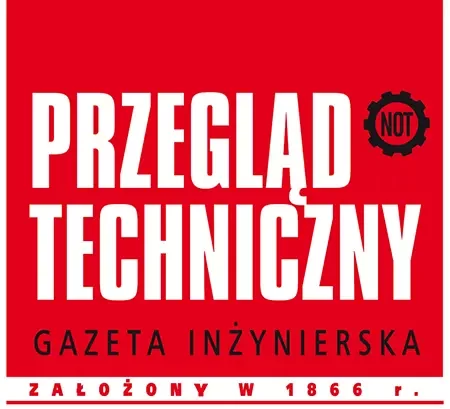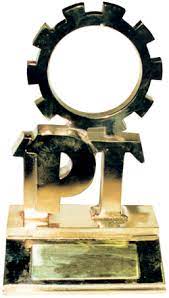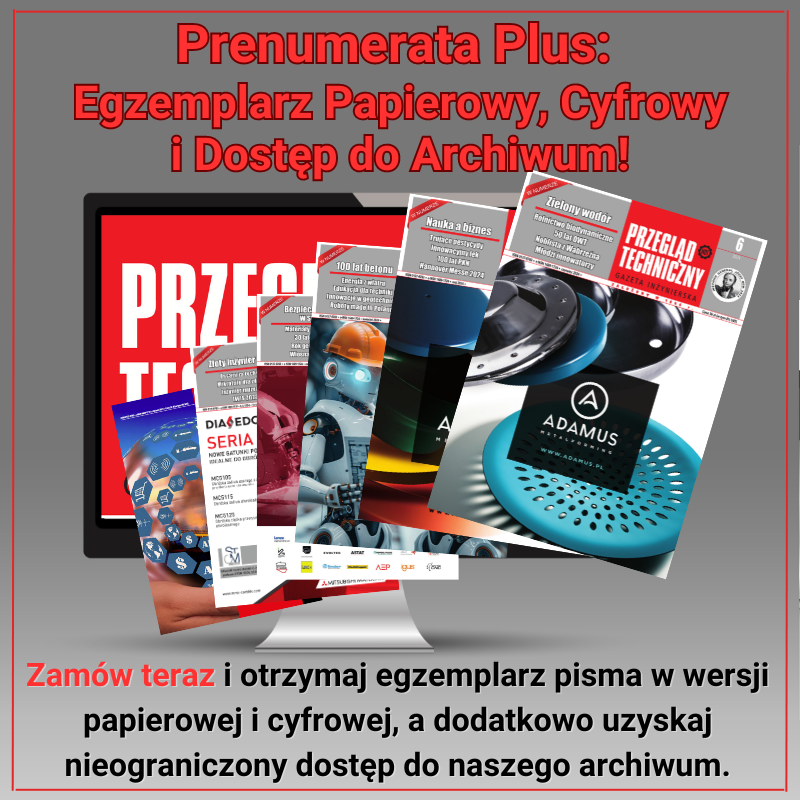– We are very pleased that the home appliance industry is meeting a myriad of environmental requirements, but some of them are dramatic for us because they significantly increase costs. We need to recycle 70% of what is sold, and we can’t always find that many used washing machines or refrigerators on the market. And what to say about heat pumps or photovoltaics, whose lifespan will end in 10 or 15 years, while we need to meet these environmental requirements today? – says Wojciech Konecki, chairman of the board of the APPLiA Association of Home Appliances Employers, in an interview with Jerzy Bojanowicz.
– Since when has APPLIA been present in Poland?
– November will mark the 20th anniversary of the opening of our office, and the registration of the Association took place in January 2004.
APPLiA is an association of household appliance employers. When I was still president of the Polish branch of Electrolux, I took the decision with my colleagues to form a joint representation, because quite restrictive environmental regulations were coming into force, mainly regarding the recovery and recycling of electronic equipment. They introduced gigantic liabilities that individual entities may not have been able to meet on their own. We were able to organize certain activities together and established a joint recovery organization. Today we process 200,000 annually. tons of so-called. electro-waste! In March, in Uniejów, we co-organized the 17th. Recycling of Waste Electrical and Electronic Equipment(WEEE) Conference.
We are not an affiliate of the Brussels-based trade association APPLiA Home Appliance Europe, which was founded in 1958. It currently includes 27 national trade organizations and 21 European household appliance companies. It provides a unified voice for the industry in Europe, promoting the industry’s mission to improve the lifestyles of its people. We are an independent Polish organization operating within this structure: we have – like similar unions in other countries – a joint secretariat in Brussels, which helps us a lot.
– At the beginning of the transition, global appliance manufacturers began investing in Poland. How did the industry fare during the pandemic, and how did it fare during the war across the eastern border?
– These were very large investments. Let me remind you that Whirlpool acquired Polar and Bosch acquired Zelmer. Wrozamet did not last. A sort of raisin was Amica, which was expanding: in addition to the kitchen factory, it put up new refrigerator and washing machine factories, but later had to sell them to Samsung. The so called “new” and “new” technologies have begun to emerge. greenfields, i.e. factories built from scratch for Bosch, Whirlpool, Electrolux, Samsung and Miele.
At the same time, there has been a parallel expansion of the home appliance industry, which was initially associated with washing machines and refrigerators. Later came dishwashers and dryers, and now heat pumps and air conditioners, which were not talked about 20 years ago. And today, these heating and cooling systems are playing an increasingly important role. Large household appliances are supplemented by a host of “small appliances,” such as previously unknown bread makers, and larger equipment such as vacuum cleaners, microwaves and range hoods. The personal care segment, i.e., devices/equipment for care or health care, has also grown. It’s not just epilators or shavers, but many personal care devices, such as a manicure and pedicure set or a hair dryer and a smoothing, flat brush.
Readers will probably be surprised, because we were – if I may say so – the beneficiary of the pandemic! The year 2020, which started dramatically, ended on a positive note, and even a year later we were still experiencing high prosperity. People sat at home and, somewhat out of boredom, taking advantage of the time because they didn’t go on vacation and didn’t go to theaters or cinemas, began renovating apartments and buying new household appliances – earlier than they had originally planned.
Unfortunately, these decisions translated into poor 2022 results. and the current one, which is not over yet, but we see a trend: unfortunately, the average of these 4. years is not good.
The war changed little, but… caused inflation. Most often at the beginning of it, consumers invest their spare funds in durable goods, but later they watch every penny, thinking about purchases. Society is getting poorer and focusing on basic expenses like food and health care.
– And home appliance manufacturers in 2022. have invested a record 2 billion zlotys in Poland. For what?
– Despite the war in Ukraine, investments in Poland continue to be made, and the greenfield factories being built are the most modern in the world, such as Miele’s factory in Ksawerowo near Łódź, where the second campus network in Poland operating in the 3.6 GHz band targeted for 5G has been established, after the Łódź Special Economic Zone.
Japanese company Daikin, which in Europe has production bases in Belgium, the Czech Republic and Germany, is investing €300 million to build a factory in Lodz, Poland, which will begin operations in July and produce heat pumps for residential buildings. In mid-June this year. Vargas, a Swedish manufacturer of energy storage and batteries for electric cars, announced the creation of Aira, which will also start production of heat pumps in the former Volvo Buses factory in Wroclaw, Poland, to be operational by the end of this year, at a cost of several hundred million euros, with a target of 500,000 units per year by the first half of 2024. And just four years ago we didn’t know much about them!
The decision to invest in Poland has also been made by German Viessmann, which specializes in heating systems, one of the world’s largest companies in this industry, and Japanese Fujitsu is trying it on.
– The production of large household appliances, of which 25.8 million were produced and account for 87% of the market by volume, fell by 15%, exports by 13%, and sales declined by 4% last year, although consumers spent PLN 17.7 billion on large (7.2 million units sold) and small household appliances, 10% more than a year ago. Are these the effects of high prices?
– It is important to clarify that ca. 90% of production is exported, so consumer behavior abroad, especially in Western Europe, is also important. And there, demand has fallen, so production has also decreased. And this decline is also influenced by investments in Turkey and Romania.
Currently, the situation in Poland is dramatic: almost all categories of equipment are experiencing 20% drops in sales. And, of course, the increase in spending is the result of higher prices for the equipment on offer.
– However, Poland maintained its position as the largest producer of large household appliances in the European Union and the second largest exporter of such equipment in the world! How?
– As much as 60% of WET equipment (dishwashers, washers and dryers) produced in the EU, approx. 40% of ovens and more than 30% of refrigerators are made in Poland. Its value exceeds 32% of the EU bid.
And why did global manufacturers locate/locate their factories in our country? First, they continued a peculiar tradition, as people’s democracies specialized in a certain way: Romania was known for clothes, East Germany for electronics, Hungary for cosmetics, and the People’s Republic of Poland for household appliances. The tone was set by the strong Polar, Wrozamet and Zelmer, so we had experience and professionals. Secondly, we are a large country with very good academic centers – polytechnics, training world-renowned engineers. We have a good location – until the outbreak of the war we were the “gateway” to the East, and a very large internal market – in Central and Eastern Europe more than 40% of sales volume is in Poland.
Initially, factories were built in Lower Silesia, later in and around Lodz, that is, at the “intersection” of highways, and in Wronki in Greater Poland. Over time, investors also began to take into account the, initially undervalued, position of local managers whose opinion mattered. I think Indesit was the first to invest, later acquired by Whirlpool, which also absorbed Polar.
Looking back, it was possible to “unite” Polar, Wrozamet and Zelmer, which did not compete with each other, and create a national conglomerate producing a rich array of household appliances, but….
Another wave was the opening of R&D (research and development) centers, competence centers and self-services, i.e. offices providing services around the world, by Western corporations. Employees of Polish R&D centers not only participate in the design of equipment, but also in the development of international quality and safety standards. Our engineers participate in the work of CENELEC (Comité Européen de Normalisation Electrotechnique, the European Committee for Electrotechnical Standardization).
– Which manufacturers are setting the tone for the market?
– There are 35 household appliance factories in Poland. According to our estimates, the entire sector, taking into account sub-suppliers of materials, services clustered throughout the product life chain, including vendors of repair service workers, employs 110,000. individuals. But the industry directly employs approx. 34 thousand. people, of which approx. 30,000. works for the industry. That’s 5% less than a year ago, as the number of temporary workers fell.
In terms of employment, the main companies are BSH Home Appliances Sp. z o.o., in whose factory 6,000. dishwashers… daily, and yet you can walk around the hall in slippers because that’s how clean it is, Electrolux Poland Sp. z o.o., Whirlpool S.A., Samsung Electronics Poland Manufacturing Sp. z o.o. and Amica S.A. They employ 73% of the sector’s workforce, account for 86% of sales and generate 76% of revenues for all home appliance manufacturers and importers.
In 2022. The combined revenues of the largest manufacturers, suppliers and importers from the production and sale of household appliances in Poland and abroad exceeded PLN 45 billion.
The Turkish company Arçelik, which does not have a factory in Poland – it has one in Turkey and Romania, of course, and sells a lot under the Beko brand in our country. It is now set to take a 75% stake in Whirlpool, which, as I mentioned, previously bought Polar and Indesit.
Globalization is making Chinese companies, such as the legitimate massive growth Haier, which acquired Candy and Hisense, and bought Gorenje, increasingly strong in the Polish market. What is unique is that both companies are run by Polish managers.
It is worth noting that Poland is home to the largest, if not the only, clothes dryer factories in Europe, although we rarely buy them!
– What is your opinion of the draft directive presented by the EU Commission on the rules for the promotion of the repair of goods, commonly referred to as the “Right to repair” (“Right to repair”)?
– It has always existed, but now it will be much more beneficial for customers. It affects not only us, that is, manufacturers of household appliances, but also consumer electronics.
Of course, we support the creation of facilities for consumers, although we have some reservations. For example, for safety reasons, servicing should be authorized at service centers, and spare parts should be more readily available. On the other hand, their availability for 10 years after the end of production of a given model is probably – no justification required – a considerable exaggeration, which will result in gigantic amounts of wasted equipment, i.e., electro-waste!
This obligation to provide remediation after the expiration of an existing legal guarantee is a cornerstone of the EU’s plan to achieve a circular economy by 2050. As part of the European Green Deal.
– A ecodesign regulation for sustainable products (ESPR), which aims to establish a legal framework for manufacturing sustainable products?
– We may sometimes grumble that new obligations are being imposed on us, because this project will cover not only equipment, but also products such as textiles and packaging. We actively cooperate with the Ministry of Development and Technology and the European Commission, and share our experience in eco-design.
The regulation aims to reduce negative environmental impacts in the life cycle of products and improve the functioning of the internal market. It also contributes to the EU’s industrial policy goals of increasing the supply of and demand for sustainable products, meeting sustainable production targets and ensuring a level playing field for products sold on the internal market. Thanks to the principles adopted in the regulation, it will be possible to decouple economic development from the use of natural resources and reduce dependence on materials, which will contribute to the EU’s open strategic autonomy and resilience.
– In addition to harmonization, an important change will be the establishment of a digital product passport, a set of product-specific data that will be available electronically via, for example, a linear barcode or QR code.
– During The 5th AGD Congress, which was held in Lodz in May, spoke, among other things. About Artificial Intelligence (AI). What could be its real impact on the industry?
– The entire household has been “wrapped” in new technologies for some time now. A lot of equipment works using the Internet of Things (IoT), but for us the most important thing is security, so that the equipment is not a “gateway” to our home system.
In practice, the IoT is used, for example, by vacuum cleaners that scan the floor to vacuum it in the best possible way, or microwave ovens, ovens, washing machines or refrigerators, whose sensors control the selection of the right amount of components needed in a given process: power, water, humidity, not to mention recipes. But for me it is not yet artificial intelligence, but advanced automation.
– And how do you see the future of the home appliance industry in Poland?
– We are an industry whose products everyone needs, because no one can imagine life without them. It is, of course, the washing machine and refrigerator, although quite unexpectedly the dishwasher comes out on top in this competition. This makes us happy, because we are guaranteed a business life probably indefinitely.
In terms of production, Poland is “taking it away” from countries that were the cradle of this equipment, such as Germany and Italy. But we can’t rest easy, because there is growing competition in Romania or Turkey that takes advantage of the cheap labor or weak currency there. Let’s also remember that we lost the eastern market, which hurts us a lot.
– Thank you for the interview.





